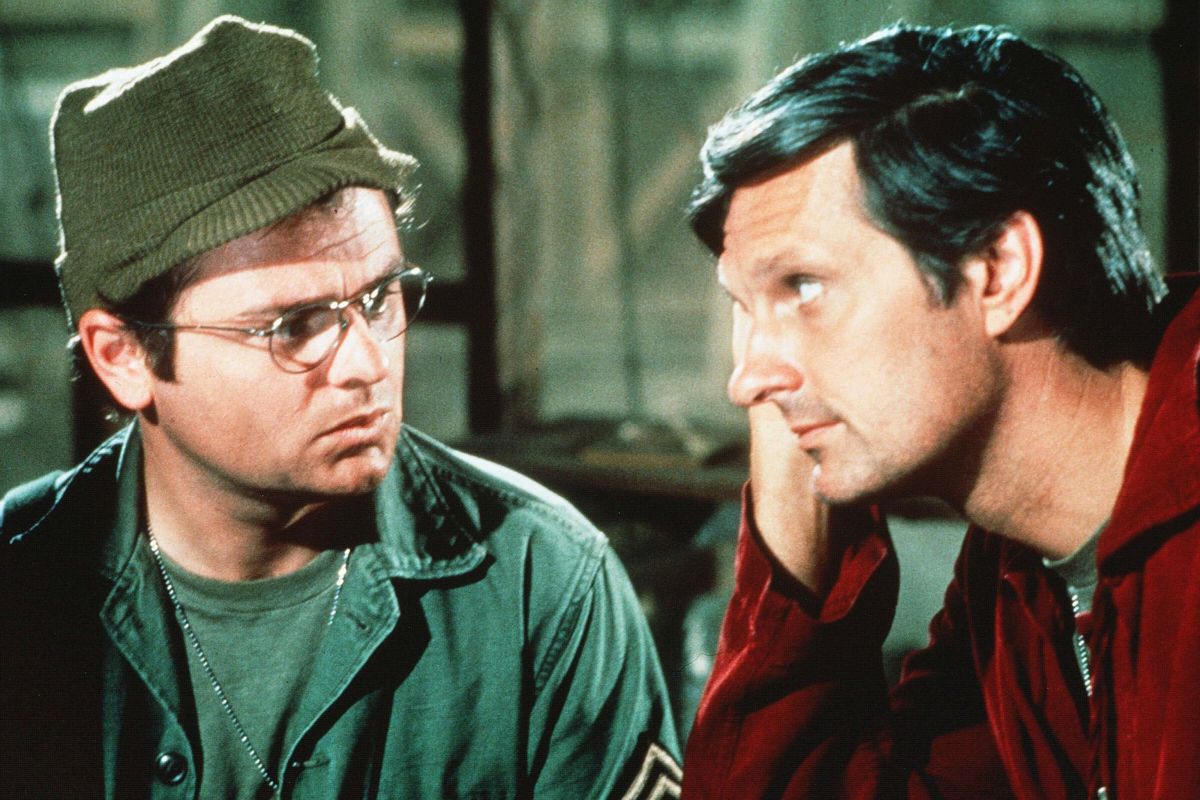The impact of M*A*S*H a half-century after its debut

There are few sitcoms that have had the creative and cultural impact of “M*A*S*H,” which debuted a half-century ago. The groundbreaking series belongs on a television Mount Rushmore along with “I Love Lucy,” which featured the comedic brilliance of Lucille Ball, the envelope-pushing “All in the Family” and the hilarious and exceptional “Seinfeld.”
“M*A*S*H” (Mobile Army Surgical Hospital), which bridged the gap between old-school sitcoms and modern television, is a relevant game changer. The show, a dramedy, which conveys that war is hell, spent 11 seasons covering the Korean War. The conflict, however, only lasted a fraction of that time. There were the conventional and the avant-garde episodes, such as the black-and-white documentary, and who can forget the dream sequences?
“I’m sure (‘Sopranos’ creator) David Chase watched the dream episode, probably when he was writing for “The Rockford Files,” NPR TV critic Eric Deggans said on a call from St. Petersburg, Florida.
Great point, since TV, like any art form, is influenced by groundbreakers. “I Love Lucy” introduced multiple cameras during the paleolithic era of television, but shows like “The Conners” still use that format. Director-writer-producer Chris Carter admitted that “Kolchak: The Night Stalker” inspired his “X-Files.” So Deggans is probably spot on regarding Chase since “The Sopranos” dream sequences are reminiscent of what “M*A*S*H” created.
“ ‘M*A*S*H’ planted the seedlings of modern television,” Deggans said. “It was an old-school show with a laugh track, but the show took chances. It’s still very entertaining.”
The show was about the Korean War but what impacted “M*A*S*H” was the contemporary, which was the post-Vietnam war. “ ‘M*A*S*H’ was supposedly set during the Korean War, but it’s very much about the late ’70s and early ’80s,” Deggans said. “That’s all over (protagonist) Hawkeye Pierce, who was really an earnest, caring ’70s guy, who would make fun of toxic masculinity. He was very much the anti-soldier.”
“M*A*S*H” had no problem dealing with heavy issues. The shocking revelation from the finale was that Hawkeye’s mental breakdown stemmed from having witnessed a Korean woman smother her own baby in order to not be discovered by troops.
The characters from “M*A*S*H” were so fleshed out that viewers felt like they knew the sensitive Hawkeye, played with comic and dramatic precision by Alan Alda. The same goes for Radar O’Reilly, expertly delivered by Gary Burghoff and Klinger, courtesy of the underrated Jamie Farr.
There are some other interesting elements about “M*A*S*H.” Did you ever wonder why the show was about Korea, not Vietnam?
“That was due to the time,” Deggans said. “They could not directly criticize something as powerful as the Vietnam War. That’s why the show is set in Korea. It’s so different today. TV shows are much more direct about what they’re criticizing now.”
Another huge contrast between yesterday and today is that television was a communal experience during the “M*A*S*H” run. Conversations around the water cooler were often centered around a show whether it was “M*A*S*H,” “Soap” or “The Battle of the Network Stars.”
“You’re absolutely right about that,” Deggans said. “Everybody watched the same shows and everyone watched the final episode of ‘M*A*S*H.’
“I talk about it all the time in my speeches. More than 100 million viewers watched the finale. It’s one of the most-watched episodes in TV history with only the Super Bowl surpassing it.”
So many people watched the final “M*A*S*H” episode that New York’s water table was altered. According to UPI, the last episode of “M*A*S*H” triggered myriad simultaneous toilet flushes minutes after the show concluded. An additional 6.7 million gallons of water were sent into the city’s sewers.
“We don’t know of any instantaneous increase in water usage that would match this,” City Department of Environmental Protection spokesman Peter Barrett said at the time to UPI.
Thanks to streaming services, folks don’t watch shows in unison anymore. But fans of extraordinary sitcoms should be acquainted with “M*A*S*H.”